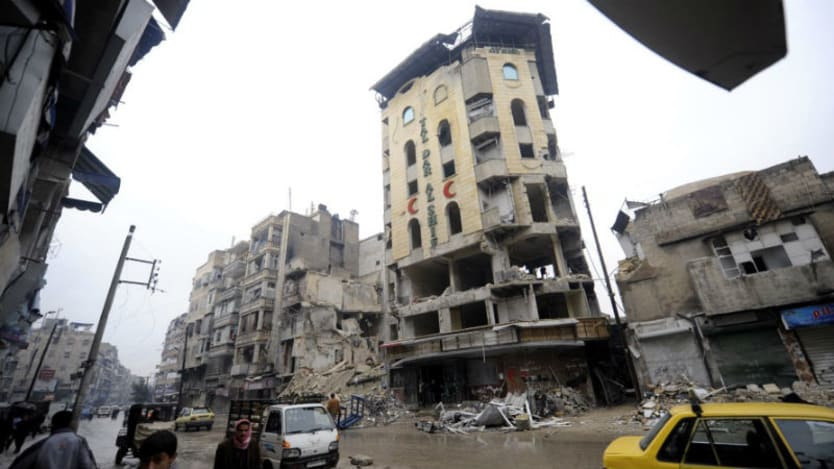
Escalating conflict and humanitarian crises continue to place health care workers at great risk. Attacks against health workers and facilities in Afghanistan increased by 50 percent in 2015. Syria is now the deadliest place in the world for health workers, reducing the availability of an already limited number of health care workers.
Direct violence isn’t the only way health care is under assault. Health workers, facilities and patients all suffer when medication and treatment is withheld from besieged populations, or water and power supplies are deliberately interrupted.
Clear laws and conventions prohibit attacks on health workers and facilities, yet in many places, they are being ignored. Despite repeated calls for the respect and protection of health care by the United Nations and the International Committee of the Red Cross, these attacks continue, depriving people of their fundamental right to health, severely disrupting humanitarian operations and undermining health systems and long-term health development goals. We must not accept this as the status quo.
See other stories in this series:
► 7 practical steps for development practitioners to work for reform
► Syria's crisis: Helping families survive in war-torn areas
► Protecting the most vulnerable: Supporting people with mental disorders during disasters
► Is there a leadership gap in humanitarian relief?
► The UNDP's take on the humanitarian-development nexus and #WHS16
Even in countries where the number of attacks seems to be decreasing, humanitarian operations may not be any safer. In fact, the reason for the apparent decline may be a decreasing population of health workers who can be targeted, as doctors, nurses, and technicians flee; health facilities shut down; and relief operations by aid agencies are shuttered due to insecurity.
Attacks on health care — whether they are targeted or as a result of large-scale violence — have an impact that goes beyond the risks to health workers’ lives. They affect not only victims and their families but also the millions of people who could not be reached: children who did not get vaccinated and patients whose injuries were left untreated. Thousands of people die every year because the environment has become too dangerous for health care to be delivered. These consequences should not be accepted as the unavoidable cost of operating in conflict settings.
Health staff working in already challenging conditions and with limited resources should not have to live in fear of constant attack, and the populations they reach cannot afford to be deprived of what little they have in terms of health services. In the fragile states that are experiencing severe instability, we cannot allow the thread connecting health workers and people in need to be severed.
A landmark resolution on health care in armed conflict unanimously adopted by the United Nations Security Council on May 3 serves as an important step in highlighting the urgency of this issue. We also need a system for collecting data on attacks on health workers, health facilities, transport and patients in complex emergencies. This can help us identify patterns and find concrete ways to avoid attacks or mitigate disruptions to health care delivery.
As the international community continues to advocate for the protection of health care workers, governments have an equally important role to play in ensuring safe and secure access to health services for all and strengthening accountability for attacks. Civil society, the media and international institutions also have a responsibility to ensure that violations are brought to light. Unless immediate action is taken by all to protect health workers and health facilities, these attacks will continue, threatening to become the norm and sealing the fate of millions of people.
“Respect the rules of war” is one of the five core responsibilities for the global community that U.N. Secretary-General Ban Ki-moon outlines in his Agenda for Humanity — a report to guide discussions and decisions at the first-ever World Humanitarian Summit in Istanbul next week. The summit is the opportunity for all of us to come together to make a strong call on all parties to armed conflict to respect the rules they have endorsed in international humanitarian and human rights law.
I sincerely hope that this summit will lead to a strengthened commitment by world leaders, international organizations, aid providers, the private sector and citizen groups to protect health care workers.
Join the Devex community and access more in-depth analysis, breaking news and business advice — and a host of other services — on international development, humanitarian aid and global health.








